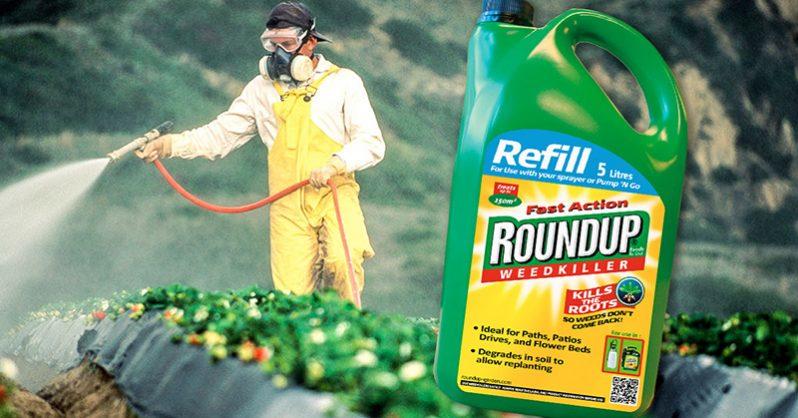A comprehensive analysis of glyphosate - the most widely used weed-killing chemical in the world - reveals that those with the highest exposures to the popular herbicide have a 41% increased risk of developing non-Hodgkin lymphoma (NHL) cancer.
The meta-analysis of six studies containing nearly 65,000 participants also looked at links between glyphosate-based herbicides and immunosuppression, endocrine disruption and genetic alterations.
The study authors said their new meta-analysis evaluated all published human studies, including a 2018 updated government-funded study known as the Agricultural Health Study (AHS). Monsanto has cited the updated AHS study as proving that there is no tie between glyphosate and NHL. In conducting the new meta-analysis, the researchers said they focused on the highest exposed group in each study because those individuals would be most likely to have an elevated risk if in fact glyphosate herbicides cause NHL. -The Guardian
"Together, all of the meta-analyses conducted to date, including our own, consistently report the same key finding: exposure to GBHs are associated with an increased risk of NHL," concludes the report.
The study, which looks at both human and animal studies also suggests that glyphosate "alters the gut microbiome," which could "impact the immune system, promote chronic inflammation, and contribute to the susceptibility of invading pathogens."
Furthermore, glyphosate "may act as an endocrine disrupting chemical because it has been found recently to alter sex hormone production" in both male and female rats.
Lastly, the study looks at genetic alterations caused by glyphosates, noting that several studies show glyphosates inducing "single- and double-strand DNA breaks," oxidation, and other "genotoxicity" factors - though the researchers caution that this remains a controversial subject.
The findings by five US scientists contradict the US Environmental Protection Agency’s (EPA) assurances of safety over the weed killer and come as regulators in several countries consider limiting the use of glyphosate-based products in farming.
Monsanto and its German owner Bayer AG
face more than
9,000 lawsuits in the US brought by people suffering from NHL who blame Monsanto’s glyphosate-based herbicides for their diseases. The first plaintiff to go to trial
won a unanimous jury verdict against Monsanto in August, a verdict the company is appealing. The next trial, involving a separate plaintiff, is set to begin on 25 February , and several more trials are set for this year and into 2020. -
The Guardian
Monsanto claims that there is no legitimate scientific research conclusively linking glyphosate to NHL or any other type of cancer - pointing to fact that the EPA's finding that the herbicide is "not likely" to cause cancer is backed by hundreds of studies. They have knocked claims by scientists with the International Agency for Research on Cancer (IARC) who classified glyphosate as a "probable human carcinogen" in 2015, suggesting that researchers engaged in improper conduct that failed to adequately consider several important studies.
As the Guardian notes, "the new analysis could potentially complicate Monsanto’s defense of its top-selling herbicide," as three of the study authors were tapped by the EPA as board members to sit on a 2016 scientific advisory panel on glyphosate.
"This paper makes a stronger case than previous meta-analyses that there is evidence of an increased risk of NHL due to glyphosate exposure," says co-author Lianne Sheppard, a professor in the Environmental and Occupational
Health Sciences department at the University of Washington. "
From a population health point of view there are some real concerns."
SHeppard was an EPA adviser on glyphosate, and was one of three advisers who told the agency that it failed to follow proper scientific protocols when it concluded that glyphosate was unlikely to cause cancer.
"It was wrong," said Sheppard. "It was pretty obvious they didn’t follow their own rules, she said. "Is there evidence that it is carcinogenic? The answer is yes."
The EPA says it is "reviewing the study."










No comments:
Post a Comment